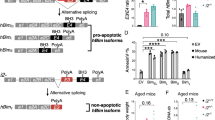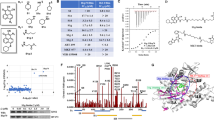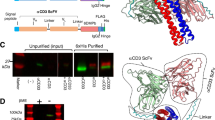Abstract
Aim:
To investigate the effects of BIIB021, an inhibitor of heat shock protein 90 (Hsp90) alone or in combination with triptolide (TPL) on T-cell acute lymphoblastic leukemia (T-ALL) and the mechanisms of action.
Methods:
Human T-ALL cells line Molt-4 was examined. The cell viability was measured using MTT assay. Apoptotic cells were studied with Hoechst 33258 staining. Cell apoptosis and cell cycle were analyzed using flow cytometry with Annexin V/PI staining and PI staining, respectively. The levels of multiple proteins, including Akt, p65, CDK4/6, p18, Bcl-2 family proteins, MDM2, and p53, were examined with Western blotting. The level of MDM2 mRNA was determined using RT-PCR.
Results:
Treatment of Molt-4 cells with BIIB021 (50–800 nmol/L) inhibited the cell growth in a dose-dependent manner (the IC50 value was 384.6 and 301.8 nmol/L, respectively, at 48 and 72 h). BIIB021 dose-dependently induced G0/G1 phase arrest, followed by apoptosis of Molt-4 cells. Furthermore, BIIB021 increased the expression of p18, decreased the expression of CDK4/6, and activated the caspase pathway in Molt-4 cells. Moreover, BIIB021 (50–400 nmol/L) dose-dependently decreased the phospho-MDM2 and total MDM2 protein levels, but slightly increased the phospho-p53 and total p53 protein levels, whereas TPL (5–40 nmol/L) dose-dependently enhanced p53 activation without affecting MDM2 levels. Co-treatment with BIIB021 and TPL showed synergic inhibition on Molt-4 cell growth. The co-treatment disrupted p53-MDM2 balance, thus markedly enhanced p53 activation. In addition, the co-treatment increased the expression of Bak and Bim, followed by increased activation of caspase-9.
Conclusion:
The combination of BIIB021 and TPL may provide a novel strategy for treating T-ALL by overcoming multiple mechanisms of apoptosis resistance.
Similar content being viewed by others
Log in or create a free account to read this content
Gain free access to this article, as well as selected content from this journal and more on nature.com
or
References
Ferrando AA, Neuberg DS, Staunton J, Loh ML, Huard C, Raimondi SC, et al. Gene expression signatures define novel oncogenic pathways in T cell acute lymphoblastic leukemia. Cancer Cell 2002; 1: 75–87.
Pui CH, Robison LL, Look AT . Acute lymphoblastic leukaemia. Lancet 2008; 371: 1030–43.
Xiao K, Liu W, Qu S, Sun H, Tang J . Study of heat shock protein HSP90 alpha, HSP70, HSP27 mRNA expression in human acute leukemia cells. J Tongji Med Univ 1996; 16: 212–6.
Lauten M, Beger C, Gerdes K, Asgedom G, Kardinal C, Welte K, et al. Expression of heat-shock protein 90 in glucocorticoid-sensitive and -resistant childhood acute lymphoblastic leukaemia. Leukaemia 2003; 17: 1551–6.
Hacıhanefioglu A, Gonullu E, Mehtap O, Keski H, Yavuz M, Ercin C . Effect of heat shock protein-90 (HSP90) and vascular endothelial growth factor (VEGF) on survival in acute lymphoblastic leukemia: an immunohistochemical study. Med Oncol 2011; 28: 846–51.
Tong WG, Estrov Z, Wang Y, O'Brien S, Faderl S, Harris DM, et al. The synthetic heat shock protein 90 (Hsp90) inhibitor EC141 induces degradation of Bcr-Abl p190 protein and apoptosis of Ph-positive acute lymphoblastic leukemia cells. Invest New Drugs 2011; 29: 1206–12.
Tavernier E, Flandrin-Gresta P, Solly F, Rigollet L, Cornillon J, Augeul-Meunier K, et al. HSP90 inhibition results in apoptosis of Philadelphia acute lymphoblastic leukaemia cells: an attractive prospect of new targeted agents. J Cancer Res Clin Oncol 2012; 138: 1753–8.
Peng C, Li D, Li S . Heat shock protein 90: a potential therapeutic target in leukemic progenitor and stem cells harboring mutant BCR-ABL resistant to kinase inhibitors. Cell Cycle 2007; 6: 2227–31.
Taldone T, Gozman A, Maharaj R, Chiosis G . Targeting Hsp90: small-molecule inhibitors and their clinical development. Curr Opin Pharmacol 2008; 8: 370–4.
Lundgren K, Zhang H, Brekken J, Huser N, Powell RE, Timple N, et al. BIIB021, an orally available, fully synthetic small-molecule inhibitor of the heat shock protein Hsp90. Mol Cancer Ther 2009; 8: 921–9.
Böll B, Eltaib F, Reiners KS, von Tresckow B, Tawadros S, Simhadri VR, et al. Heat shock protein 90 inhibitor BIIB021 (CNF2024) depletes NF-kappaB and sensitizes Hodgkin's lymphoma cells for natural killer cell-mediated cytotoxicity. Clin Cancer Res 2009; 15: 5108–16.
Yin X, Zhang H, Lundgren K, Wilson L, Burrows F, Shores CG . BIIB021, a novel Hsp90 inhibitor, sensitizes head and neck squamous cell carcinoma to radiotherapy. Int J Cancer 2010; 126: 1216–25.
Zhang H, Neely L, Lundgren K, Yang YC, Lough R, Timple N, et al. BIIB021, a synthetic Hsp90 inhibitor, has broad application against tumors with acquired multidrug resistance. Int J Cancer 2010; 126: 1226–34.
Dickson MA, Okuno SH, Keohan ML, Maki RG, D'Adamo DR, Akhurst TJ, et al. Phase II study of the HSP90-inhibitor BIIB021 in gastrointestinal stromal tumors. Ann Oncol 2013; 24: 252–7.
Luo Y, Shi C, Liao M . Advance in the anti-tumor mechanism of triptolide. Chin J Chin Mater Med 2009; 34: 2024–6.
Carter BZ, Mak DH, Schober WD, McQueen T, Harris D, Estrov Z, et al. Triptolide induces caspase-dependent cell death mediated via the mitochondrial pathway in leukemic cells. Blood 2006; 108: 630–7.
Carter BZ, Mak DH, Schober WD, Dietrich MF, Pinilla C, Vassilev LT, et al. Triptolide sensitizes AML cells to TRAIL-induced apoptosis via decrease of XIAP and P53-mediated increase of DR5. Blood 2008; 111: 3742–50.
Park B, Sung B, Yadav VR, Chaturvedi MM, Aggarwal BB . Triptolide, histone acetyltransferase inhibitor, suppresses growth and chemosensitizes leukemic cells through inhibition of gene expression regulated by TNF-TNFR1-TRADD-TRAF2-NIK-TAK1-IKK pathway. Biochem Pharmacol 2011; 82: 1134–44.
Li H, Hui L, Xu W, Shen H, Chen Q, Long L, et al. Triptolide modulates the sensitivity of K562/A02 cells to adriamycin by regulating miR–21 expression. Pharm Biol 2012; 50: 1233–40.
Li H, Hui L, Xu W, Shen H, Chen Q, Long L, et al. Modulation of P-glycoprotein expression by triptolide in adriamycin-resistant K562/A02 cells. Oncol Lett 2012; 3: 485–9.
Zhou GS, Hu Z, Fang HT, Zhang FX, Pan XF, Chen XQ, et al. Biologic activity of triptolide in t(8;21) acute myeloid leukemia cells. Leuk Res 2011; 35: 214–8.
Huang M, Zhang H, Liu T, Tian D, Gu L, Zhou M . Triptolide inhibits MDM2 and induces apoptosis in acute lymphoblastic leukemia cells through a P53-independent pathway. Mol Cancer Ther 2013; 12: 184–94.
Meng HT, Zhu L, Ni WM, You LS, Jin J, Qian WB . Triptolide inhibits the proliferation of cells from lymphocytic leukemic cell lines in association with downregulation of NF-κB activity and miR-16-1*. Acta Pharmacol Sin 2011; 32: 503–11.
Bai F, Pei XH, Godfrey VL, Xiong Y . Haploinsufficiency of p18 (INK4c) sensitizes mice to carcinogen-induced tumorigenesis. Mol Cell Biol 2003; 23: 1269–77.
Powers MV, Workman P . Targeting of multiple signalling pathways by heat shock protein 90 molecular chaperone inhibitors. Endocr Relat Cancer 2006; 13: S125–35.
Palomero T, Sulis ML, Cortina M, Real PJ, Barnes K, Ciofani M, et al. Mutational loss of PTEN induces resistance to NOTCH1 inhibition in T–cell leukemia. Nat Med 2007; 13: 1203–10.
Chang WT, Kang JJ, Lee KY, Wei K, Anderson E, Gotmare S, et al. Triptolideand chemotherapy cooperate in tumor cell apoptosis. A role for the p53 pathway. J Biol Chem 2001; 276: 2221–7.
Jiang XH, Wong BC, Lin MC, Zhu GH, Kung HF, Jiang SH, et al. Functional p53 is required for triptolide-induced apoptosis and AP-1 and nuclear factor-kappaB activation in gastric cancer cells. Oncogene 2001; 20: 8009–18.
Agirre X, Novo FJ, Calasanz MJ, Larráyoz MJ, Lahortiga I, Valgañón M, et al. TP53 is frequently altered by methylation, mutation, and/or deletion in acute lymphoblastic leukaemia. Mol Carcinog 2003; 38: 201–8.
Jonveaux P, Berger R . Infrequent mutations in the P53 gene in primary human T-cell acute lymphoblastic leukemia. Leukemia 1991; 5: 839–40.
Yeargin J, Cheng J, Haas M . Role of the p53 tumor suppressor gene in the pathogenesis and in the suppression of acute lymphoblastic T-cell leukemia. Leukemia 1992; 6: 85S–91S.
Diccianni MB, Yu J, Hsiao M, Mukherjee S, Shao LE, Yu AL . Clinical significance of p53 mutations in relapsed T-cell acute lymphoblastic leukemia. Blood 1994; 84: 3105–12.
Hsiao MH, Yu AL, Yeargin J, Ku D, Haas M . Nonhereditary p53 mutations in T-cell acute lymphoblastic leukemia are associated with the relapse phase. Blood 1994; 83: 2922–30.
Kawamura M, Ohnishi H, Guo SX, Sheng XM, Minegishi M, Hanada R, et al. Alterations of the p53, p21, p16, p15, and RAS genes in childhood T-cell acute lymphoblastic leukemia. Leuk Res 1999; 23: 115–26.
Vilas–Zornoza A, Agirre X, Martín-Palanco V, Martín-Subero JI, San José-Eneriz E, Garate L, et al. Frequent and simultaneous epigenetic inactivation of TP53 pathway genes in acute lymphoblastic leukemia. PLoS One 2011; 6: e17012.
Hendy OM, Elghannam DM, El-Sharnouby JA, Goda EF, El-Ashry R, Al-Tonbary Y . Frequency and prognostic significance of murine double minute protein-2 overexpression and p53 gene mutations in childhood acute lymphoblastic leukemia. Hematology 2009; 14: 335–40.
Wade M, Li YC, Wahl GM . MDM2, MDMX and p53 in oncogenesis and cancer therapy. Nat Rev Cancer 2012; 13: 83–96.
Li Q, Lozano G . Molecular pathways: targeting Mdm2 and Mdm4 in cancer therapy. Clin Cancer Res 2013; 19: 34–41.
Lamottke B, Kaiser M, Mieth M, Heider U, Gao Z, Nikolova Z, et al. The novel, orally bioavailable HSP90 inhibitor NVP-HSP990 induces cell cycle arrest and apoptosis in multiple myeloma cells and acts synergistically with melphalan by increased cleavage of caspases. Eur J Haematol 2012; 88: 406–15.
Acknowledgements
This work was supported by the Doctoral Fund of Ministry of Education of China (No 20120101110010), National Natural Science Foundation of China grants (No 81070419 and No 81200384), Zhejiang Provincial Natural Science Foundation of China (No R2090392), Funds of Science Technology Department of Zhejiang Province (No 2012C13021-2 and No 2012C37103), and Fund of Health Bureau of Zhejiang Province (No 2010SSA006).
Author information
Authors and Affiliations
Corresponding author
Rights and permissions
About this article
Cite this article
Li, M., Zhang, X., Zhou, Wj. et al. Hsp90 inhibitor BIIB021 enhances triptolide-induced apoptosis of human T-cell acute lymphoblastic leukemia cells in vitro mainly by disrupting p53-MDM2 balance. Acta Pharmacol Sin 34, 1545–1553 (2013). https://doi.org/10.1038/aps.2013.124
Received:
Accepted:
Published:
Issue date:
DOI: https://doi.org/10.1038/aps.2013.124



